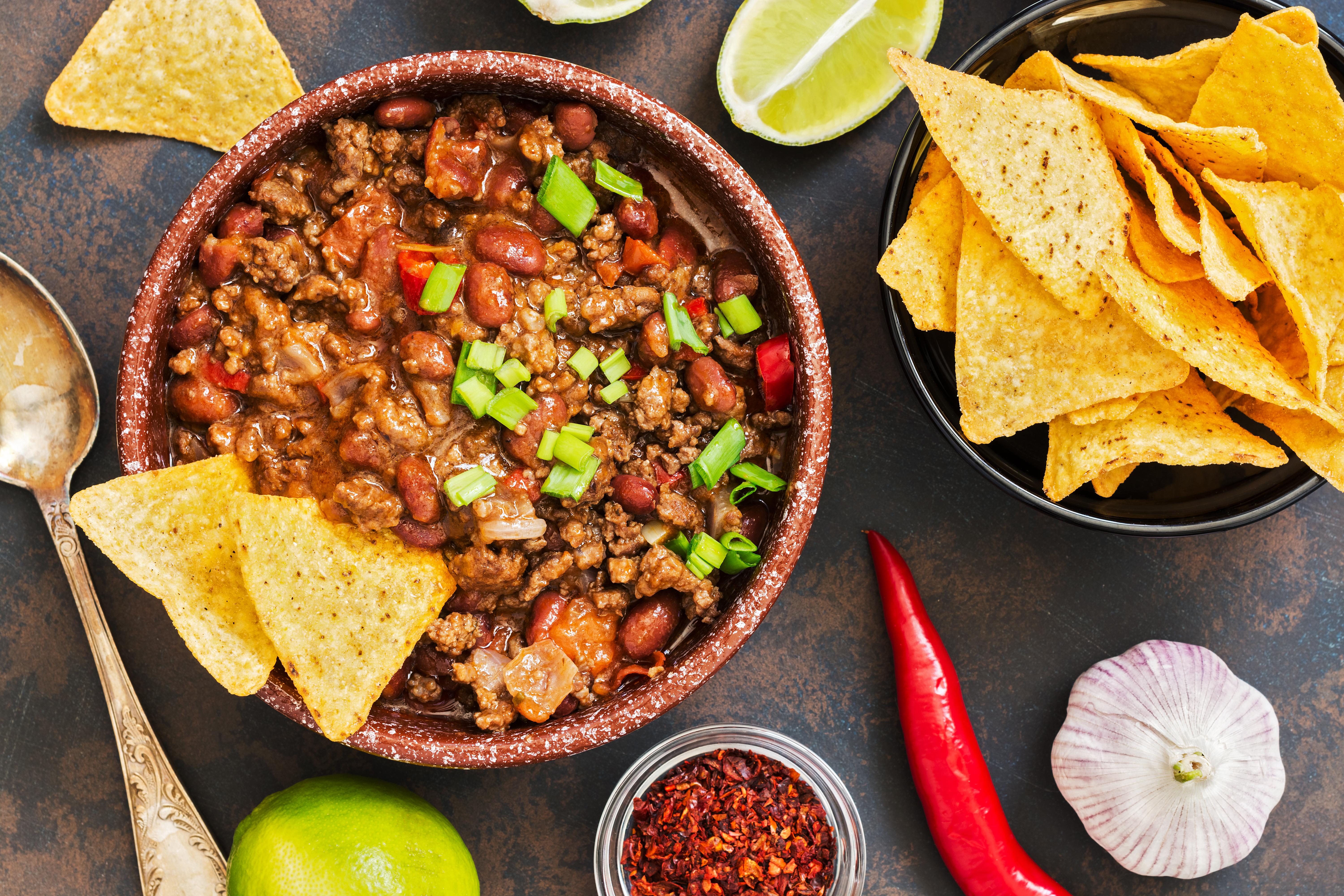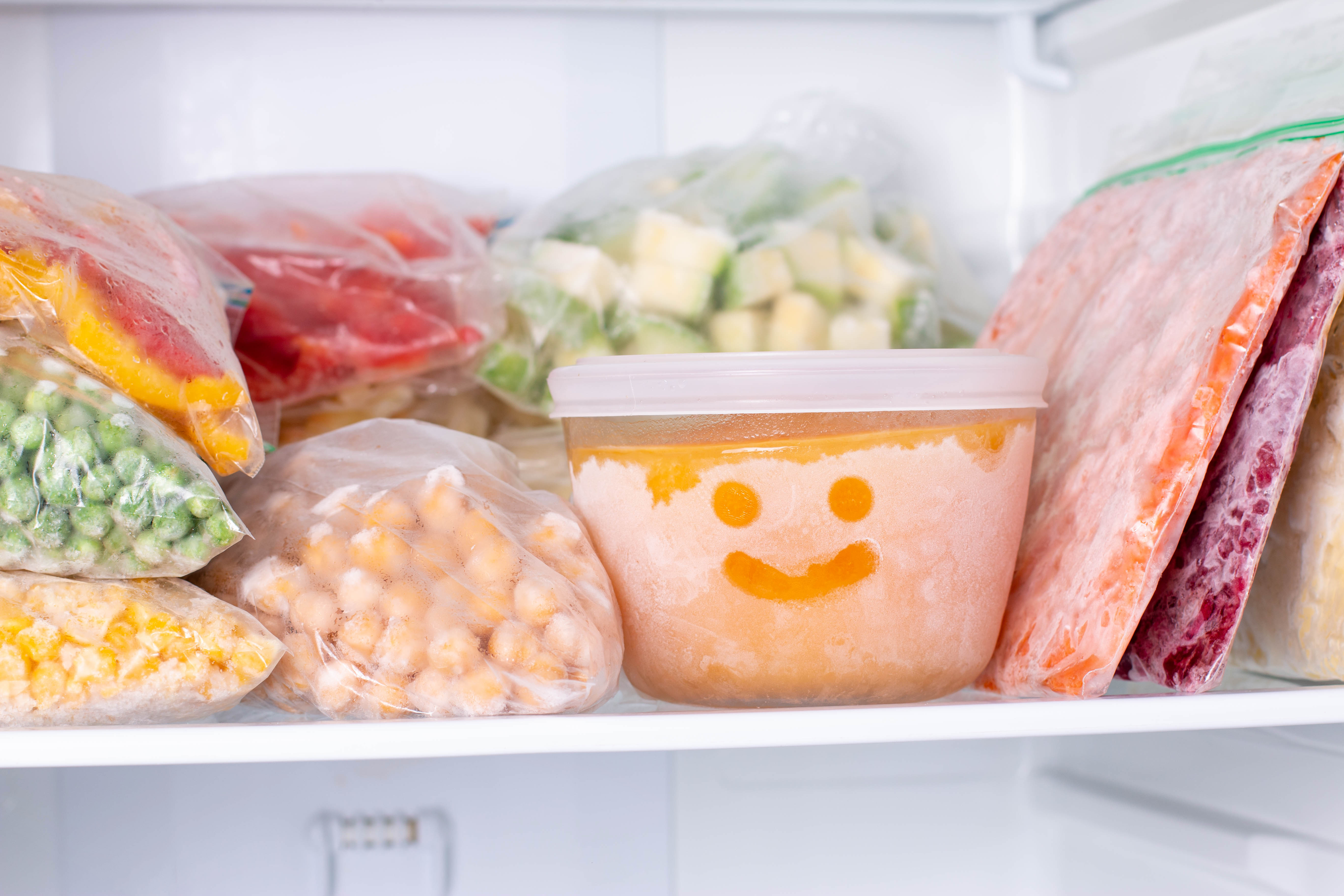Free digital copy
Get Speciality Food magazine delivered to your inbox FREE
Get your free copy
The landscape of frozen food is changing as savvy consumers switch up their habits. The freezer is no longer a forgotten part of the kitchen used to host languishing tubs of ice cream and the odd pack of chips or peas – it’s become a vehicle for eating better, more mindfully, and with an eye on managing and minimising household waste, while saving money.
According to research by FMCG Gurus, four out of 10 global consumers say they’ve cut down on eating out and takeaways, while increasingly reaching for better quality food to eat at home. “This includes more premium ready meals, which consumers associate with both convenience and good value for money,” says FMCG Gurus’ Kate Kehoe.
The premium element, she adds, is an important part of the conversation, with 73% of those asked attempting to eat more healthily, paying attention to ingredient lists, and actively looking for meals made with minimal processing, and fewer additives. ‘Protein’ and ‘fibre’ top the list in terms of what they’re searching for in the frozen aisle, and 54% said they will pay more for a ‘natural’ ready meal, “due to its association with health and an absence of artificial ingredients.”
In the face of this ‘new wave’ of interest in the sector, fine food retailers are upping their frozen game, with multiple farm shops, food halls and delis increasing their offering, and seeing positive results.

When they were redesigning the layout of their store a few years ago, the team at Friday Street Farm Shop decided to invest heavily in frozen – adding a whopping seven freezers to this already extensive part of the shop floor.
There are dedicated branded freezers for Fieldfare, Cook, and The Original Baker, as well as sections to house the growing range of locally-made frozen goods, including H&J Gelato, and Brick pizzas.
“Frozen is one of our highest selling areas,” reveals deli manager Toby Edwards. “It’s why a lot of people come our way.” The Original Baker is one of the brands the shop is best known for. “People were calling out for sausage rolls and pies they could take home and cook, so for us, it made sense to bring in more of that as an investment.”
Toby believes customers being time-poor is a key driver to the success of frozen at Friday Street. “They’re looking for a cooked meal, or some croissants for breakfast, or gratins they can pop in the oven to save time slicing up potatoes. They know we can save them time with what we have.”
Ready meals and meal solutions made in-house have seen an increase in popularity alongside frozen too, says Toby. “I’ve been in the butchery trade since 2015, and the sales of these kinds of things has increased tenfold at least. I feel the whole area of pre-made has increased massively. Our stir fries sell really well. You just put the mix straight in a pan and it’s ready to eat in minutes. It’s that quick to cook element that’s really appealing.”
Toby says he and the operators of the farm shop see these parts of the business as hugely valuable, and they wouldn’t hesitate to tell others this is a good investment if they are thinking of expanding or mixing up their offering this year. “We were sceptical about increasing the area to begin with,” he explains. “We thought we’d have loads leftover, but it’s actually increased sales more, and we’ve been able to delve into lots of different things. The demand is very big.”
Milly Bagot, founder of ByRuby, which struck up a distribution partnership with Fieldfare in 2023, says it was her own personal experience of the value of high quality, homely ready meals, that led her to launch the company in 2018.
“My granny always used to fill her freezer with casseroles, and my sister made batches for me when I had my child. I thought ‘why don’t we do this more?’”
Milly was convinced there was a gap in the market for frozen food made with love, just as you’d prepare it in your own kitchen. And she was right. In the last financial year, ByRuby saw sales increase by 50%, with a similar trajectory predicted for 2024, and the brand can now be found in 54 Waitrose stores, as well as a number of independents.
Winding back the clock, Milly says she could see the sector at the time was “a little bit boring”. She thought she could revolutionise what a ready meal could be, and her vision was cemented during lockdown when she felt people wanted to have a real treat at home – a more nutritious, instant alternative to a takeaway.
The frozen food market, she says, is changing for the better. “Gone are the days of people thinking about fishfingers and peas. They are now realising the benefits of frozen. From a freshness perspective, it’s like pressing pause on something until you’re ready to press play again.” Consumers, Milly adds, are using premium ready meal options as a way to claw back precious time for themselves and their family. “Our ethos is that we’re making handmade food that’s ready when you are. You might come home from work, and can’t face cooking – and you can put a delicious dinner in the oven straight from the freezer.” This convenience is, she says, one of the main reasons customers tell her they love her range of products – as are provenance and clean labelling.
ByRuby uses around 97% British ingredients, including Suffolk chicken, and beef from a farm in Yorkshire. The brand, as many other emerging premium makers, has steered away from being ultra-processed, with UPF a concern for shoppers as research continues to show the effect it has on our bodies. “The beauty of frozen is you don’t have to add preservatives to lengthen the shelf life of a product,” says Milly. “We only use store cupboard ingredients you could buy in your weekly shop. We wouldn’t add anything you didn’t recognise.”
Aligning with other makers, ByRuby’s biggest sellers are geared to comfort – lasagne, fish pie and chicken tikka all being big hits, with a new occasion range launching this spring, aimed at feeding four, rather than one or two people. “That will allow us to be able to hit that family market, which will be exciting, not only for families, but for couples having friends round for dinner,” Milly says.
Alongside convenience, flavour and quality, Milly believes sustainability is core to people’s buying decisions when stocking their freezers. They are looking to businesses that are doing things in a greener way before they spend out on premium products. “There’s no waste in our kitchen,” Milly says. “We cook exactly the right amount each time. And we don’t use plastic trays. Ours use pulp, which will go through the recycling with cardboard and paper. The liner contains a little plastic, but it’s less than 5%.”

Operating in the frozen arena for nearly 50 years, Fieldfare can be considered as leading the way in the sector when it comes to value, quality, and sustainability, says managing director Matt Whelan.
Over that time the brand has become a trusted staple in farm shops and food halls across the UK, and the team have seen, certainly in more recent years, a noticeable uptick in the popularity of premium prepared frozen products.
Part of this can be explained by shopping habits and environment. As more and more of us ventured into farm shops and garden centres during the lockdown period, we enjoyed the element of discovery. This is a completely different experience to supermarkets, where customers want to get in and out as quickly as possible. “Browsing really strengthens the offering,” Matt says. “It’s hard for supermarkets to sell premium frozen because people aren’t browsing. Frozen food, for them, is a high-speed aisle.”
Another factor Matt believes is affecting our reliance on frozen, is changing family dynamics. “There are more households of one or two people where dependent children have left.” Buying loose frozen foods, as offered by Fieldfare, allows those smaller households to pick exactly what they need. This way of shopping appeals to families where members may be on different diets too. “Gone are the days where we all had one meal at the table that tended to accommodate everyone. Frozen can provide choice here, to satisfy a new era of consumption.”
Key to growth in the sector is driving home the message that frozen food can be really very good. Matt feels consumers are looking at premium frozen in a more open-minded fashion, due to brands like Fieldfare, which are pushing the boundaries to get the message across that it’s the perfect, and best, way to buy certain items. He cites frozen pizza dough as an example of changing perceptions. “You can buy one, two, five – as many as you need. There’s no mess. Take it out, defrost it, the yeast comes back to life, and you have perfect pizza, ready for your toppings. That’s a product people are buying into and trusting more and more.”
That trust, as well as positioning and strong point-of-sale messaging, are essential for fine food retailers. Fieldfare, Matt says, has always helped with branding, from providing freezers and backboards, to signposting visitors on its website to stores that stock its products.
He’s noticed some shops are now putting freezers front and centre of their offering, alongside fresh produce. “It’s about being confident frozen is a good signpost of quality. We’re trying to create a destination around frozen, and we get a lot of positive feedback on branding.”
Quality, these days, can be perceived as stretching beyond the taste, texture and provenance of a product – customers want to be assured the businesses they support are doing their bit for the environment, and Fieldfare is constantly looking at ways to be as sustainable as possible, with a low/no waste ethos. Around 90% of its products are sold unwrapped, and the bags on offer at point of sale are compostable. “That’s something we’ve been pioneering,” says Matt. “Although, ideally, we want shops to encourage customers to bring in and reuse their own tubs. Sustainability is something that really matters to us.”
With ready meal creators seeing off-the-charts sales, and retailers reporting enhanced interest in frozen food, there is good reason to be optimistic for frozen as a category. “My gut feeling is that we will see more growth in the sector,” says Matt. “We’re continuing to grow and innovate as a business. We’re launching several new products early this year. We’ve found a new partner to make our popular herby parmentier potatoes, so those will be top of the list. And we have a wonderful new chicken schnitzel, a lovely apple tart with lots of sliced apples and a buttery pastry, a rich fruits of the forest streusel, and an apple fritter. The idea is to keep building on the range, bringing in things that compliment each other. Things of quality. Quality and value are what matter most to people.”

This year not only marks the 75th anniversary of the British Frozen Food Federation (BFFF), but it’s 100 years since Clarence Birdseye brought to market the fast-freezing process, which changed world food production forever.
“Our 100-year journey is a reflection of the ever-improving taste, quality and convenience of frozen food, and we hope to continue to support our members and the wider industry for the next century,” says Rupert Ashby, chief executive of the BFFF.
The industry continuously demonstrated outstanding performance during 2023, despite challenging economic conditions that impacted the entire frozen food supply chain.
According to new Kantar data growth was seen with a year-on-year increase in value of 15.6%, and of volume by 0.4%.
The most substantial growth was in frozen potato products (up 4.6%), and savoury food (up 5.1%).
A surprise is the spike in ice cream sales, which grew by an impressive 10% in the 12 weeks to November 26. This unusual demand over the autumn season reflects recent impressive innovation in the category, and shoppers opting for cosy nights in rather than costly nights out.
“I am elated to see the exceptional performance of our industry in 2023,” says Rupert. “The numbers speak volumes, and are a testament to our members, who have continued to innovate and provide shoppers with value for money foods, despite battling costs and inflation. Frozen food has been embraced by shoppers during what has been an extremely tough year for many.”